Over the weekend, I had the honour of being a part of something rare and rich in meaning. I attended, volunteered and taught yoga at a beautiful festival organised by LOOK UK, a charity supporting blind young people and their families. As a LOOK Mentor myself, I support younger blind individuals through peer mentoring and regularly get involved in their projects — but this event felt like the living, breathing embodiment of everything we strive for in the world of Equality, Diversity, and Inclusion (EDI).
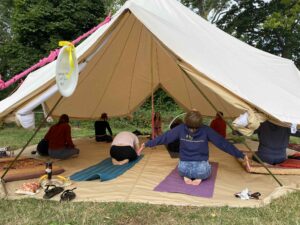
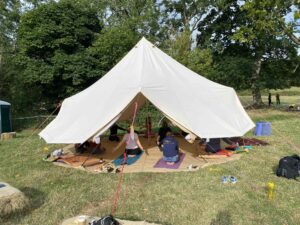
Set against a peaceful countryside backdrop in Hereford— with open fields, horses, alpacas, and joy in the air — this wasn’t just a festival. It was a manifestation of what happens when accessibility and inclusion aren’t afterthoughts, but the very foundation of design.
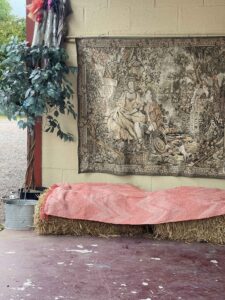
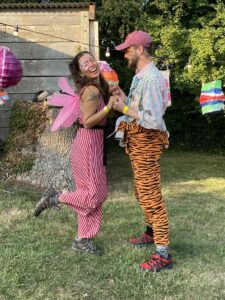
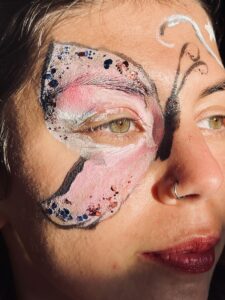
There were sensory cues at each gate, with distinct sounds to orient us — playful, creative solutions that made navigating joyful, not frustrating. There were braille on children’s books and timetables. There were large print timetables, and tactile bunting that lead to different areas of the festival. There were also lights that lead to the toilets on the volunteer field and everything was in close proximity but with enough space to roam. Children and teens, blind, partially sighted, and sighted siblings alike, sang and danced freely on stage. They expressed their whole selves, unapologetically, radiantly. No one asked intrusive questions about our vision or challenged our right to be there. Whether we used a cane, a sighted guide, or simply moved intuitively, we were trusted. We were seen — not for our limitations, but for our capabilities and may I say…. vast landscape of professions and skills! This, to me, is what true inclusion feels like. And it’s so different from what many spaces claim to offer. It’s become all too common to see the word “inclusive” or “accessible” stamped on websites and event flyers. It’s a box ticked, a quota filled, a photo posted. But inclusion isn’t a brand — it’s a practice. One that requires self-inquiry, lived experience, co-creation, accountability to improve and evolve when feedback is given. So many businesses and events today preach inclusion but don’t practice it. There’s a performative nature to much of what passes as EDI — surface-level diversity without substance, access promised but not delivered. This is why critical thinking is vital. It’s something we’re rarely taught in school — to question, to challenge, to notice what’s missing or misaligned. But it’s essential if we want to shift from passive acceptance to genuine change-making. We need to ask:
Who is this space really for?
Whose voices shaped it?
Who’s missing?
Who gets to speak?
Who gets to lead?
This is where LOOK UK gets it right — and it’s no accident. The charity was founded in the early 1990s by a parent whose blind daughter was being mistreated and underestimated by the education system. Like many other blind children of the time, she was seen as less capable. Educational systems often misjudged blind or (dis)abled pupils — sometimes categorising them as having low IQs simply because of flawed, sight- or ‘able-bodied’-dependent assessments.
These misunderstandings were not just hurtful — they were systemic acts of exclusion.
That daughter is now the CEO of LOOK UK. A powerful, full-circle moment — and a testimony to how crucial it is to dismantle outdated narratives and allow people to define themselves.
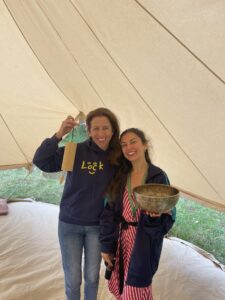
The LOOK Festival was a continuation of that legacy. It wasn’t about charity or sympathy — it was about celebrating difference and fostering empowerment. As mentors (all blind – on prectrum of blindness), we supported young people alongside sighted volunteers in a truly collaborative way. There was no hierarchy. Just community, creativity, and purpose. What I witnessed over the weekend was young people thriving. Not in spite of their vision — but as their whole selves, encouraged, nurtured, and un-judged. Children took to the stage and sang, danced, and shared their voices authentically through their own creative expressions. Others explored the site freely with family or new friends enjoying learning new skills whilst partaking in the different activities that were shared on site. There was a sensory mud kitchen, pot planting workshop, yoga and mindfulness sessions, African drumming, dance, crafts, music sessions and so much more available to choose from.
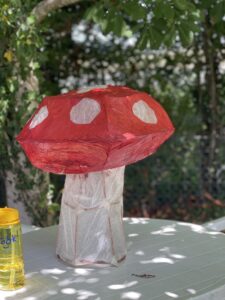
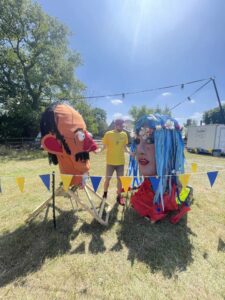
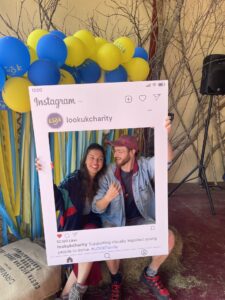
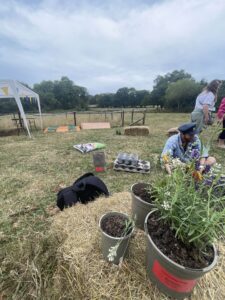
The environment and the people within it recognised that blindness is a spectrum, and that needs and the level of sight of individuals could change with differences in levels of light, stress, fatigue, and time. The event offered freedom for people to simply exist without needing to prove anything. And for me personally, that meant feeling comfortable moving with or without a cane — with no questions, no stares. That kind of ease is rare. In a world that too often demands explanations for our presence, this weekend felt like a deep, collective exhale. This wasn’t just a break from daily barriers — it was a glimpse into what society could be if difference was not just tolerated, but truly understood and welcomed. It reminded me that inclusion doesn’t only benefit those historically excluded. It uplifts everyone. It brings richness, empathy, and humanity back into our interactions. In a world still shaped by ableism, racism, and narrow definitions of intelligence and success, the LOOK Festival was a powerful counter-narrative. It was a celebration of the beauty that exists when we design with everyone in mind, when inclusion is led by lived experience, and when young people are empowered to show up as themselves. Let this be a call to think more deeply, to listen more closely, and to rebuild the spaces around us so that difference is not feared or suppressed— but welcomed, encouraged, celebrated and honoured.
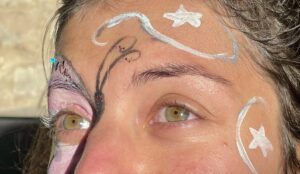
I have also put together two videos about LOOKFEST! PART 1 (reflections Q&A & PART 2 (When voices are heard – LOOKFEST Vlog). Enjoy!
Want to Volunteer at LOOKFest 2027?
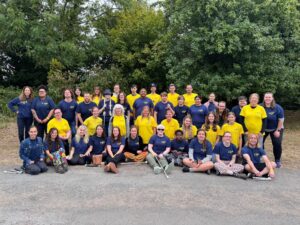
If you’re a sighted person looking for a truly meaningful volunteering opportunity, LOOKFest is an unforgettable way to be part of something bigger than yourself. As someone who’s experienced it first-hand, I can honestly say it’s one of the most welcoming, empowering, and joy-filled events I’ve ever been a part of. Sighted volunteers play a vital role in making the weekend run smoothly — from assisting families and helping with accessibility, to supporting workshops and mealtimes and simply being present in a respectful, kind way. Your contribution helps create the environment where blind young people can thrive, express themselves, and feel free to just be. Whether you have prior experience or you’re simply curious and open to learning, the LOOK team will provide all the guidance and training you need. The impact you’ll make — and the growth you’ll experience — is immeasurable.
🌐 Find out more at: www.look-uk.org
📧 To express your interest, email:
events@look-uk.org
volunteering@look-uk.org
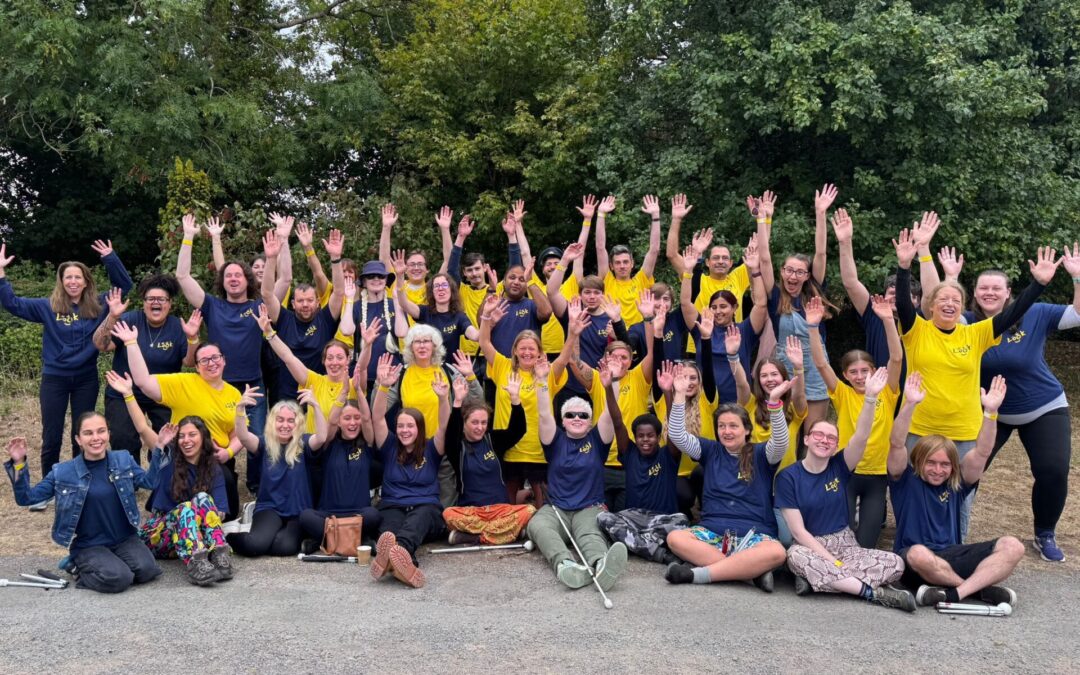
This is such a beautifully written blog. I totally agree with everything you said. The weekend was quite magical and it felt like we were creating something quite wonderful.
Thank you so much for your comment Rowan! It was a truly magical weekend, I agree! I’m glad you enjoyed this read – thank you for being a great presence at the event too! We all worked so hard to ensure it was smoothly run and empowering for all!!